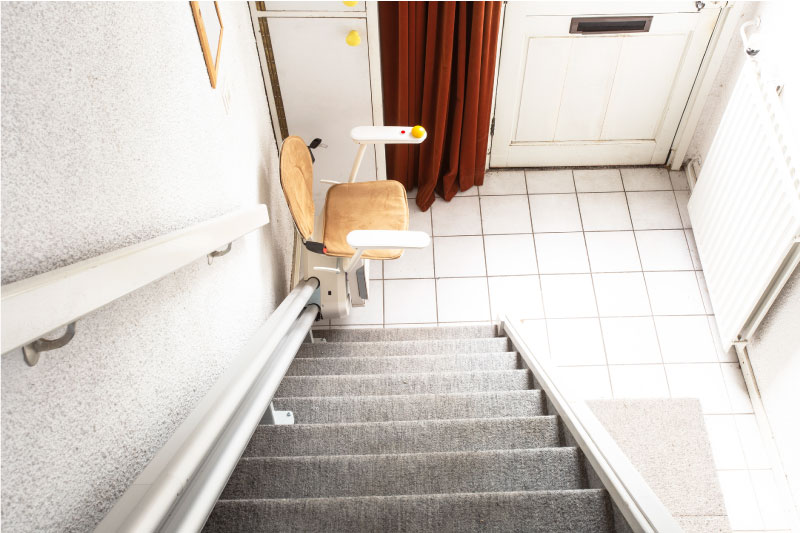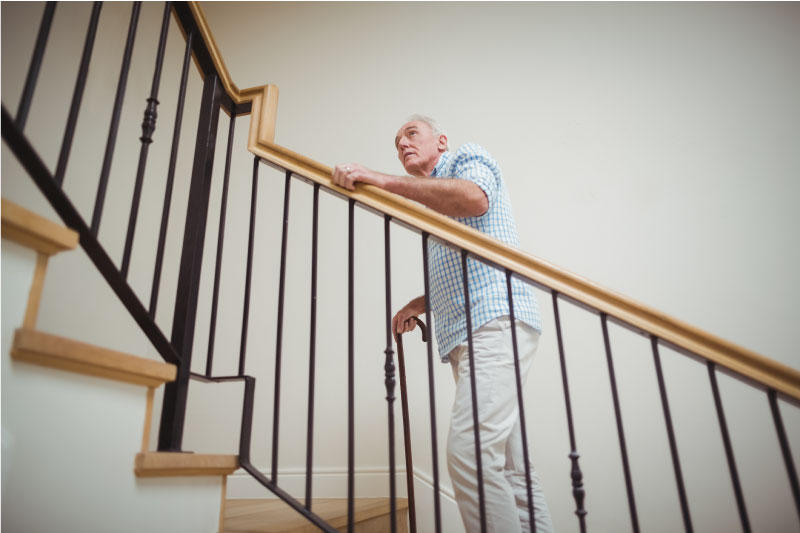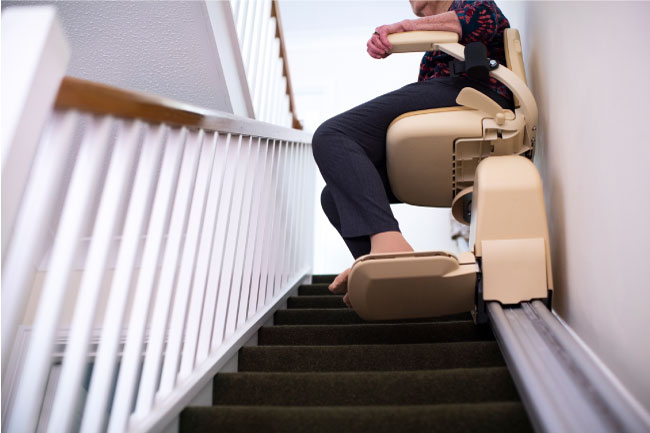
A stair lift and help a senior mobility, a key part of aging in place. But will Medicare pay for a stair lift?
Traditional and Supplemental Medicare policies don’t cover stair lifts (sometimes called chair lifts or glide lifts), but seniors who need one may still be able to get financial help. Other possibilities include Medicare Advantage plans, Veterans Administration benefits, Medicaid eligibility, and state home improvement assistance programs.
Why won’t Medicare pay for my stair lift?
Standard Medicare considers stair lifts to be assistive devices that are used mainly for personal comfort of convenience. Because they aren’t deemed “medically necessary,” stair lifts aren’t covered by either Medicare or Supplemental Medicare (Medigap) policies.
That does seem surprising, because a stair lift can make it easier and safer for someone to age in place.
One in four Americans over the age of 65 have at least one fall each year, and stairs are a common source of injuries. Coverage for more assistive devices that help prevent falls could result in substantial savings. A 2019 article published in the Journal of Bone Surgery estimated that direct annual medical costs associated with hip fractures in the United States are over $50,000 per fracture and total $5.96 billion each year.

Will my Medicare Advantage plan cover a stair lift?
It may. Beginning in 2019, a CMS rule change allowed Medicare Advantage (MA) plans to offer increased supplemental coverage for dental, hearing, vision, non-skilled in-home care, and more. Last year, coverage expanded to include items included for “daily maintenance.”
First, see if your doctor will certify that the stair lift is “medically necessary.” If so, check with your MA provider to see if you can get full or partial coverage for a stair lift. Remember that MA providers compete for your business, so always evaluate your options during Medicare’s annual open enrollment period each fall.
Do state Medicaid plans cover stair lifts?
Unlike Medicare, which is a federal program, Medicaid is a health insurance program administered by states, under federal guidelines. When most people think of Medicaid benefits for the elderly, they assume it’s nursing home care only – and most seniors want to avoid that!
The good news is that many states have applied for Medicaid Home and Community Based Services (MHCBS) waivers. These waivers allow states to use Medicaid funds to help seniors remain in their own homes and communities for longer. That often provides better quality of life – and it’s much less expensive than nursing home care. Some waivers cover home modifications and/or installation of assistive devices that increase home safety.
Since programs vary by state, check with your state’s Medicaid agency to see if you are eligible.

Does the VA pay for stair lifts for qualifying veterans?
In many cases, the Veteran’s Administration pays for home modifications for current or former military members with service-related disabilities. Veterans who can’t climb stairs because of a service-related disability may qualify for a VA-provided stair lift. Note: VA regulations refer to them as “stair glides.”
The VA requires a patient evaluation and in-home visit before approving any stair lift request. Contact your local VA office or physician for more information.
Are there any state programs that help pay for stair lifts?
Many states (and some local governments) offer home improvement/modification grants or low-interest loans to seniors and people with disabilities.
State home improvement assistance funds can be used on modifications that help seniors maintain their independence and increase home safety. For example, the CHOICE program in Indiana helps fund home and community-based services to “assist individuals in maintaining their independence in their own homes or communities for as long as is safely possible.“
Each state has its own eligibility requirements, but most require the applicant to meet age and other eligibility requirements, including income and asset limits. Contact your local Area Association on Aging to learn about options in your state.

Learn More
Are you considering a stair lift, but are confused about all the different types, costs, and payment options? Our article “What Does a Stair Lift Cost?” offers information and guidance about stair lifts and stair safety tips.
Remember that accidents happen all the time – even to the most cautious, careful people. If the worst happens, you need to be able to summon help quickly. Our GetSafe medical alert system offers peace of mind without the need to wear a necklace or wristband. Call for help by pulling a cord, pushing a button, or simply telling the system to “Call 9-1-1.”







